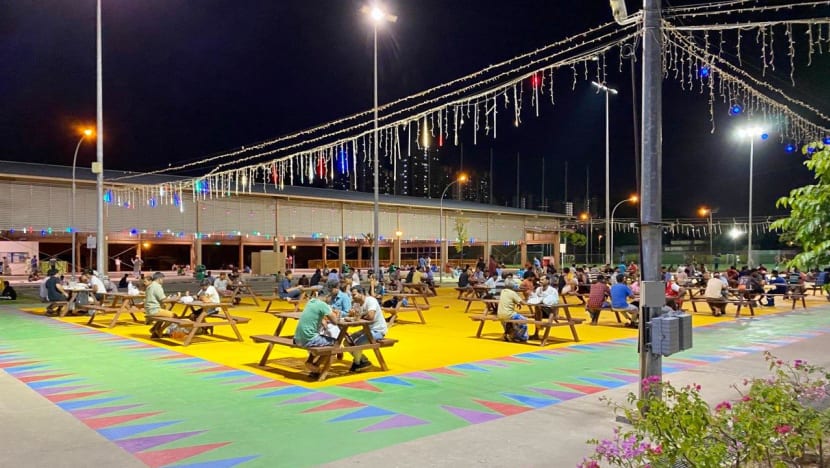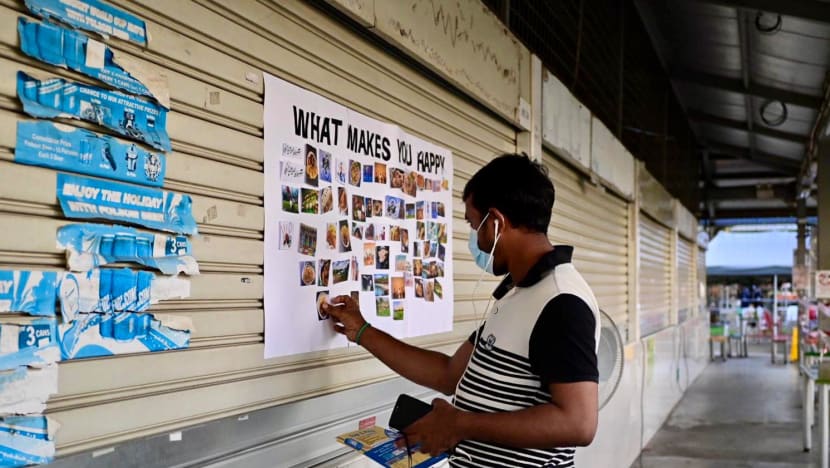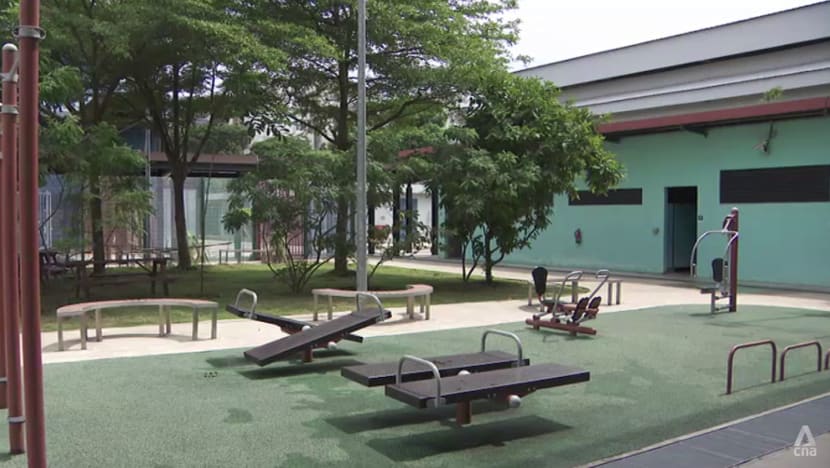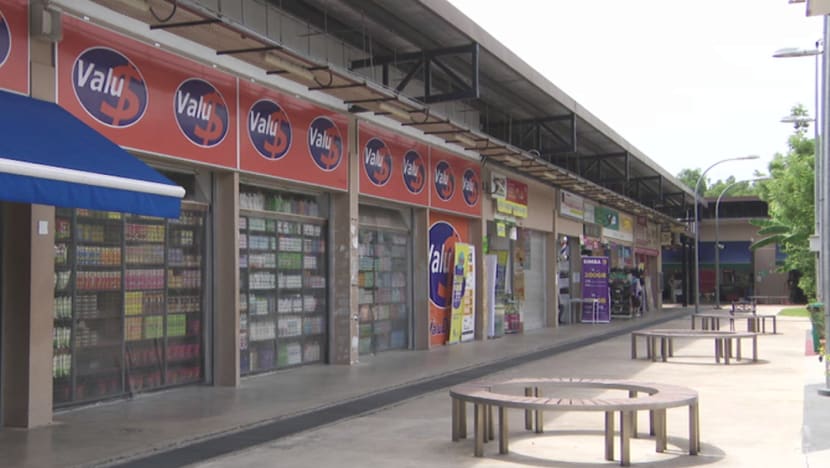NTUC gets government grant to run 3 migrant worker recreation centres
The Ministry of Manpower also plans to refurbish older recreation centres for migrant workers, starting with Penjuru Recreation Centre in 2025.

Penjuru Recreation Centre will undergo renovations in 2025 and will get a new administrative block and an alfresco beer garden. (Photo: Ministry of Manpower)

This audio is generated by an AI tool.
SINGAPORE: The National Trades Union Congress (NTUC) will take over the operation of three migrant worker recreation centres (RCs) in Singapore for three years from Aug 1.
The appointment of external operators for recreation centres is part of the Ministry of Manpower's (MOM) efforts to improve the quality of the centres, the ministry announced on Friday (Jun 28).
MOM also plans to collaborate more with non-governmental organisations (NGOs), refurbish older recreation centres and pilot new design concepts for recreation centres.
Penjuru RC will be the first one to undergo renovation, starting in 2025. It will get a new administrative block for classes and events, and a new alfresco beer garden. The refurbishment will take between 18 to 24 months.

Singapore has nine recreation centres located near migrant worker dormitories. Of these, six are currently operated by MOM, two are privately operated and one is run by the Migrant Workers' Centre, which was established by NTUC and the Singapore National Employers Federation.
Recreation centres are places where migrant workers can buy groceries, handphones and SIM cards.
Shops offering remittance services also used to be important, though they are less relevant now that digital banking is available, said Mr Tung Yui Fai, chief of MOM's assurance, care and engagement group.
The centres also offer sports facilities, event spaces and medical services. Workers can use the centres for prayers, and the spaces can also be used for vaccinations, swab tests and recovery during a pandemic.


MOM said NTUC has a good understanding of migrant workers' needs and "strong operational experience" in running the the Migrant Workers' Centre Recreation Club on Soon Lee Road in Jurong.
Mr Michael Lim, director of NTUC's Migrant Workers Segment, said operating three more recreation centres means that the organisation will be able to scale up its activities.
"Take for instance, if we were to bring artists coming in to perform at one RC, there is certainly possibility for us to extend such performances and all, for the benefit of workers in the other three RCs as well," he said.
When NTUC takes over the operations of Tuas South RC, Terusan RC and Penjuru RC, existing tenancy agreements between the centres' tenants and MOM will be terminated, and they will sign new agreements with NTUC.
Mr Lim said that NTUC will work with tenants to ensure that prices are kept reasonable. He added that the organisation makes an effort to understand the needs of workers.
"Last Sunday, we ... actually launched a new gym at Soon Lee Recreation Centre – that came about from feedback from workers, and we hope to continue to do more in that area," he said.
Shops at Soon Lee RC also sell cooking spices that workers from Bangladesh and India are familiar with, said Mr Lim.
"It's quite challenging for them to get it through your usual supermarkets and retail," he said, adding that Little India may be too far away for the workers to get to.
He said he hopes to meet similar needs in the recreation centres that it will start to operate in August.
NTUC also said it will organise training and skills upgrading for workers, bring in programmes by NGOs, corporate sponsors and government agencies, and advocate for workers' welfare and interests.
GRANT TO BE GIVEN TO NTUC
The government will financially support NTUC in running the recreation centres, MOM said.
"To ensure that RCs are attractive to migrant workers, who have lower spending power, MOM will disburse a grant to NTUC to support the operations of the three RCs," the ministry said in a press release.
NTUC must meet annual visitorship targets and have the necessary governance controls and financial and procurement procedures to receive the grant.
When asked what the visitorship targets would be, Mr Tung declined to reveal specifics but said it would be higher than pre-COVID-19 visitor numbers. Visitorship at some centres is nearly back to pre-pandemic levels, but that is not the case at all of them, he added.
NTUC said the recreation centre it runs on Soon Lee Road has 120,000 visits per month on average, which is comparable to pre-pandemic figures.
When asked about how workers can be encouraged to visit RCs, NTUC's Mr Lim said proximity is just one factor.
"If a RC has no attractive, relevant offerings and services, even if the dormitory is located nearby, it doesn't make sense for a person to want to go there," he said.
"Our focus is really more about how do we better understand our community? How do we take in their feedback and introduce offerings that are (demanded) by this group? That, in a way, would help generate the visitorship that we're trying to achieve."
Migrant workers in Singapore could soon enjoy more enrichment programmes conducted by organisations partnering with the government. The first to offer these is the Manpower Ministry's latest recreation centre in Sembawang. Marcus Tan with more.
Beyond NTUC, MOM said it intends to identify other "like-minded partners" with the necessary experience to run recreation centres.
Mr Tung said the three criteria for these operators would be experience with migrant workers, operational capability and alignment in prioritising migrant workers' social and recreational needs.
The operators are expected to attract a "vibrant mix of tenants" and trial innovative programmes, MOM said.
MOM also surveys workers on their preferences, and has brought in English classes and computer classes for workers.
"I think it's an important point, about knowing what the workers' preferences are," said Mr Tung. "And of course, we have to continuously ... do it, because workers' needs will evolve over time."














